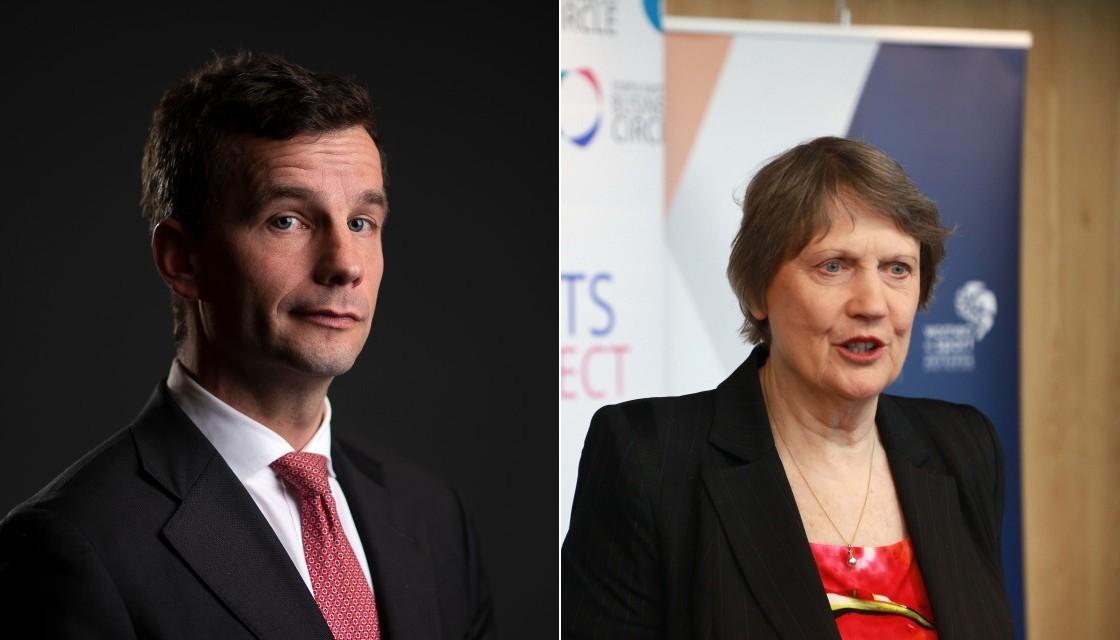ACT leader David Seymour says "Helen Clark got it right" by not signing up to the UN Declaration of Indigenous Peoples in 2007, and is now calling for all parties in Parliament to renounce the declaration.
New Zealand was one of only four countries that did not join the declaration when it was established in 2007, though National later signed up in 2010.
A controversial Government report commissioned in 2019, He Puapua, subsequently laid out a roadmap for how New Zealand can fulfil its obligations under the declaration - and the Government has now launched consultation with iwi on that document.

But Seymour says Parliament never voted for New Zealand to join the declaration in the first place and it happened "without full democratic consent".
"John Key got it wrong when his government signed the declaration," Seymour said on Sunday.
"He may have thought it was just symbolism, but it is now creating great division with the He Puapua report demanding it transforms New Zealand's constitutional arrangements with 'declaration compliance' by 2040."
According to the UN, the Declaration of Indigenous Peoples "establishes a universal framework of minimum standards for the survival, dignity and well-being of the indigenous peoples of the world and it elaborates on existing human rights standards and fundamental freedoms as they apply to the specific situation of indigenous peoples".
But Seymour says the provisions in the declaration are "redundant or impractical" because "the Universal Declaration of Human Rights and New Zealand's Bill of Rights Act already deliver them".
"For example, the declaration says: 'Indigenous peoples and individuals are free and equal to all other peoples and individuals and have the right to be free from any kind of discrimination, in the exercise of their rights, in particular, that based on their indigenous origin or identity.' This should and does apply to all New Zealanders equally under the Universal Declaration of Human Rights and New Zealand's Bill of Rights."
In other areas, the declaration is impractical because it "contradicts liberal democracy", Seymour says.
"It attempts to give some people different rights because of their birth, effectively taking rights from others.
"New Zealand is now clearly at a crossroads brought about by the Key Government's naive signing of the Universal Declaration of the Rights of Indigenous Peoples. Either New Zealand is to be a liberal democracy where all human beings are born free and equal in dignity and rights, or a kind of ethnostate where some are born more equal than others.
"It is time the National Party realises its mistake, and the Labour Party recovers its former position on both UN Declarations."
The He Puapua report has also been slammed by National's current leader Judith Collins, who said it contained a "radical interpretation of the Treaty of Waitangi".
But speaking on Newshub Nation on Saturday, Māori Party co-leader Rawiri Waititi said some recommendations in the report don't go far enough.
He says the current system isn't working and wants Māori to have another way of getting more control over their affairs.
"Our people have tried to manipulate and work in the system for a long, long time. But I think it's time for us to start looking at some new systems where it's more equitable and more equal for indigenous people" he told Newshub Nation.
"We need to start looking at how Māori can participate more equally and equitably in that particular space in a tiriti-centric Aotearoa. Not in a democracy, because… democracy is majority rules, and indigenous peoples - especially Māori at 16 percent of the population in this country - will lose out, and we'll sit in second-place again."




